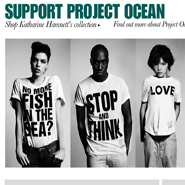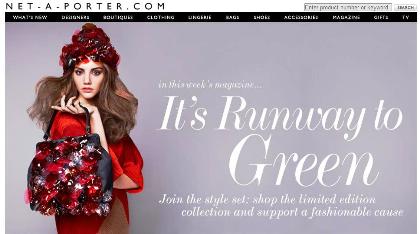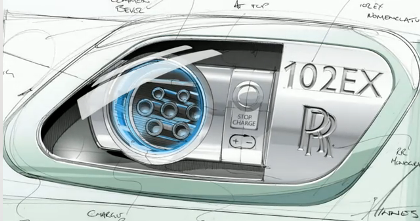- About
- Subscribe Now
- New York,
August 8, 2011

A majority of eco-friendly, environmentally-conscious U.S. consumers are wealthy, according to a new study from Scarborough Research.
The new study found that 76 percent of ecofriendly consumers have an annual household income of more than $150,000. Luxury brands such as Selfridges, Net-A-Porter, Lexus and Rolls-Royce have already played into to the ecofriendly trend with green products.
“Luxury marketers have an incredible customer base in the ‘super green,’” said Deirdre McFarland, vice president of marketing at Scarborough Research, New York.
“They can open the door to the super green through not only offering eco-friendly products, but also by connecting with their interests lifestyles,” she said.
Scarborough research measures lifestyle and shopping patterns, media behaviors and demographics of U.S. consumers.
Going green
A few luxury brands picked up on the importance of ecological friendly products and campaigns before the trend.
In the spring, British department store Selfridges & Co. conducted its largest multichannel campaign in history that was aimed at educating consumers about the problems resulting from overfishing.
Selfridge’s Project Ocean promoted 20 different environmental organizations, and drove people in-store to purchase products.

In addition, online retailer Net-A-Porter and nonprofit organization Runway to Green tapped designers such as Prada, Stella McCartney and Marc Jacobs for a limited-edition collection raising funds and creating awareness for leading environmental organizations worldwide
The participating worldwide environmental organizations included the Alliance for Climate Protection, the Natural Resource Defense Council and the United Nations Environmental Program’s Billion Tree Campaign.
Luxury automotive manufacturers have also recently created greener products.
Lexus created a new hybrid car this year, the Lexus CT 200h, which it marketed through a partnership with singer Kylie Minogue.
Also, a hesitant Rolls-Royce created an electric car 102EX, also known at the Phantom Experimental Electric to test the options and reactions to alternative vehicle options (see story).

Earthly shifts
These trailblazers are ahead of what appears to a be a cultural shift, not a fading trend.
“This is not a trendy fad,” said Chris Ramey, founder of Affluent Insights, Miami. “It is an example of affluent consumers having the bandwidth to understand the importance of saving our environment and it will trickle down to those that are less travelled, less affluent and less educated.”
Currently, the study proves that a majority of environmentally-conscious consumers are wealthy.
The study concluded that the “super-green consumers” are more likely to won homes valued above $500,000 as well as being more likely to own second homes.
In addition, the super-green consumer is 49 percent more likely to buy a luxury vehicle in the coming year and 77 percent more likely to spend more than $45,000 on new car purchases.
“It is intriguing that the country’s most environmentally friendly consumers also are among the wealthiest,” Scarborough’s Ms. McFarland said.
“This could be related to higher costs associated with certain green products, for example, organic food,” she said. “Or, it could be because they tend to be members of Generation X and working toward a high point of earnings in their careers.”
Another reason for the affluent society to be more eco-conscience is because of their education and lifestyle.
“The wealthiest consumers are well-travelled and they understand the value of sustainability and being eco-friendly,” Affluent Insight’s Mr. Ramey said.
However, brands should not make their green efforts the focus of any marketing campaign because affluent consumers are most likely well-educated and will see through this.
“If you brag about it, people will be skeptical,” Mr. Ramey said. “If a brand lives it, the affluent consumer will see it.
“It’s a little bit like [the idea of] luxury itself, if you have to tell people its luxury, it probably isn’t.”
Final Take
Kayla Hutzler, editorial assistant on Luxury Daily, New York
Share your thoughts. Click here